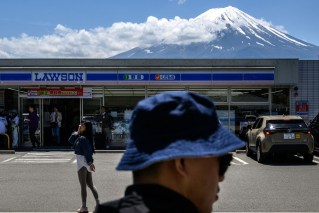View of volcano to be blocked as Japan reckons with overtourism

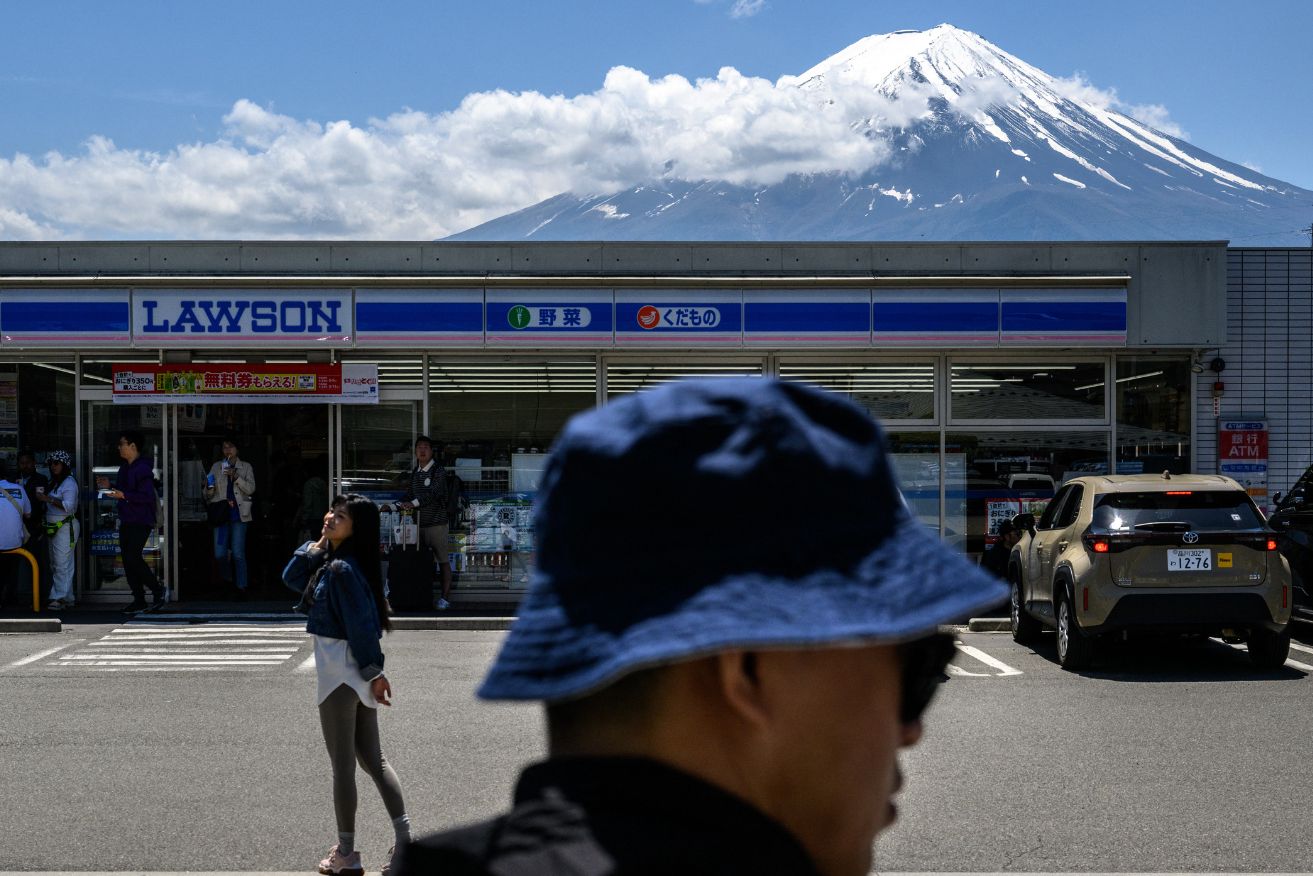
Japanese authorities are going to use a massive black billboard to block this famous view of Mount Fuji. Photo: Getty
A shop near Mount Fuji may be among the most photographed convenience stores in the world because, with the right angle, it perfectly juxtaposes nature with the urban environment.
But Fujikawaguchiko town officials are far from pleased with the influx of tourists who come daily to snap a photo of the Lawson convenience store with the famous snow-topped volcano in the background – and they are doing something about it.
A barrier will soon be installed to block the picture-worthy view, something Dr Freya Higgins-Desbiolles, a senior lecturer in tourism management at the University of South Australia, thinks is a good idea.
“That’s the thing about the bucket list, it’s profoundly selfish,” Higgins-Desbiolles told TND.
Even before social media, people would flock to landmarks or particular regions on holiday – think the Leaning Tower of Pisa. But social media has certainly exacerbated the issue of tourists going to any lengths to get the perfect shot.
Combine that desire for the perfect social media post and voluntary codes of conduct rather than actual laws about tourist behaviour, and it’s probably not too surprising that Japan and many other countries are struggling with overtourism and badly-behaved tourists.
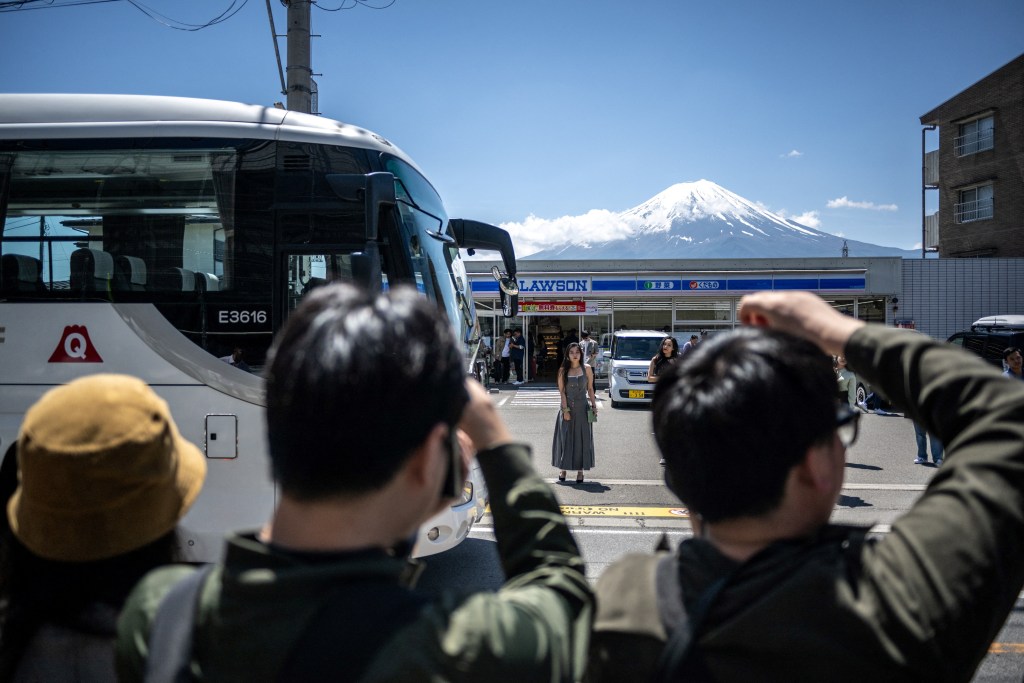
This view of a convenience store with Mount Fuji in the background will soon be obscured. Photo: Getty
Why is Japan grappling with tourism woes?
It’s not just the store near Mount Fuji that has become a sore spot for Japan.
Earlier this year Kyoto banned tourists entering the narrow alleyways in the Gion geisha district due to repeated bad behaviour and overtourism.
Sydney resident Deirdre Smith is a long-time visitor to Japan. When she first went in 2010 and started working in the ski fields, there were hardly any other tourists.
“You would have a whole temple, a whole alleyway to yourself; now it’s just heaving with people,” she told TND.
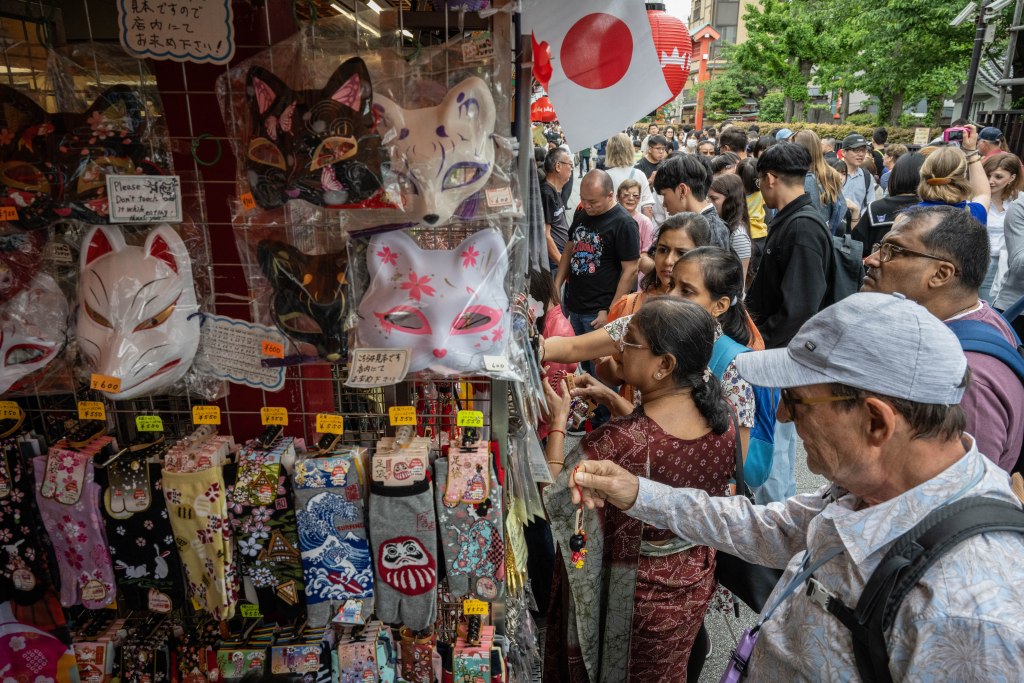
Overtourism is a huge issue in Japan. Photo: Getty
Higgins-Desbiolles said the screen that will block Mount Fuji was a “brilliant” solution and something that other sites and destinations could consider.
“Destinations should get creative like that to prevent people from breaking the values that the destination [holds dear],” she said, noting that social media was fuelling the appalling behaviour.
Smith agrees there’s an expectation among tourists to get the perfect photo while in Japan – which can be perplexing to locals.
“Everyone is just wanting to get the perfect shot or the same shot, so that’s a bit strange,” she said.
“But it’s particularly bad in Japan, because it is crowded. The people are very well-behaved and they are not used to tourists.”
Etiquette in Japan
Japanese culture is vastly different from Australian culture, and while Smith said Australians generally weren’t the worst, there were still differences people should keep in mind.
In Japan, people like to have a drink, as do Australians. But Australians might have a few and then get a bit boisterous, while Japanese people will generally just fall asleep.
Smith has seen a lot of “bad drunken behaviour” on the ski slopes. Locals in Japan find it perplexing and will usually be concerned when a tourist passes out in the snow, as some have died that way.
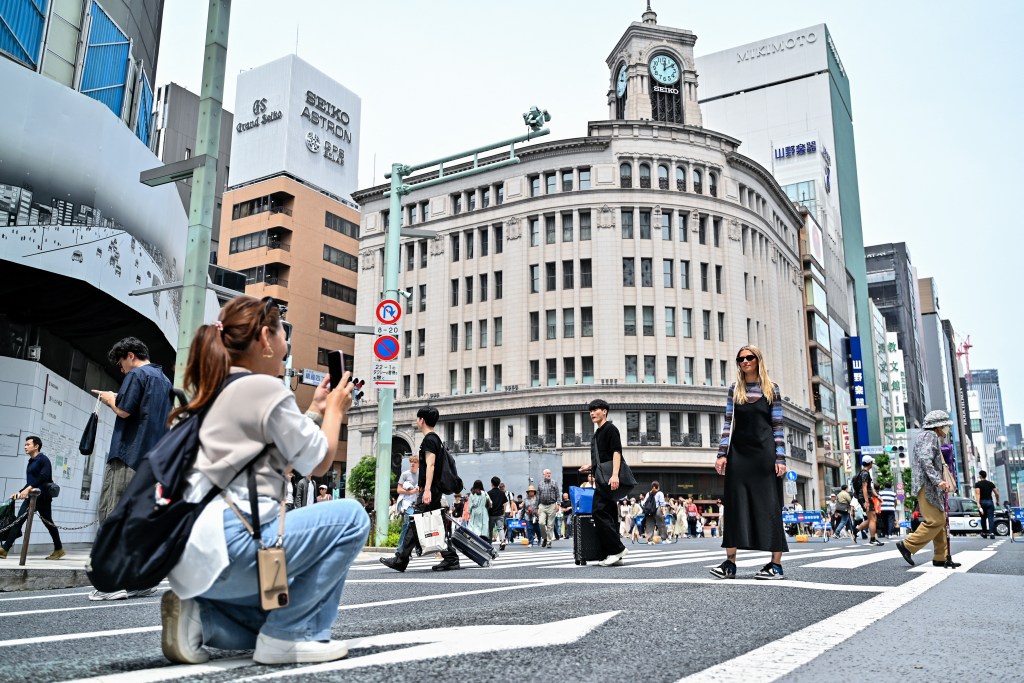
Tourists trying to get the perfect selfie are leaving some people in Japan confused. Photo: Getty
Australians also tend to inadvertently get in the way.
“Australians are really big and get in the way everywhere and they’re really indifferent to it,” Smith said.
“They open the door at 7-Eleven and think ‘Where’s my phone?’, so they stand in the doorway, looking for the phone, while people are trying to get around them.”
Speaking on trains is a big no-no, as is eating and drinking in public. Culturally, the Japanese are also very neat and it is expected people will take their rubbish with them.
Higgins-Desbiolles said it could be hard to reach tourists and tell them to be responsible when travelling – and, with luck, get them to brush up on cultural differences.
But her advice to tourists, wherever they are travelling, is to understand the conditions and challenges of a destination and its local community and at the very least, make one commitment.
“When you visit, commit yourself to benefiting that place at the minimum by at least ensuring that your money goes into that local economy,” she said.
“So local people benefit from it and they’re not harmed by your visit.”








